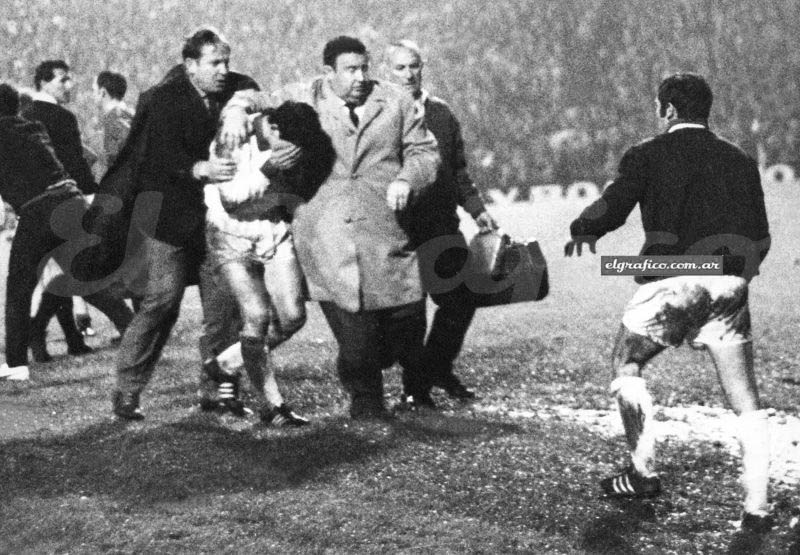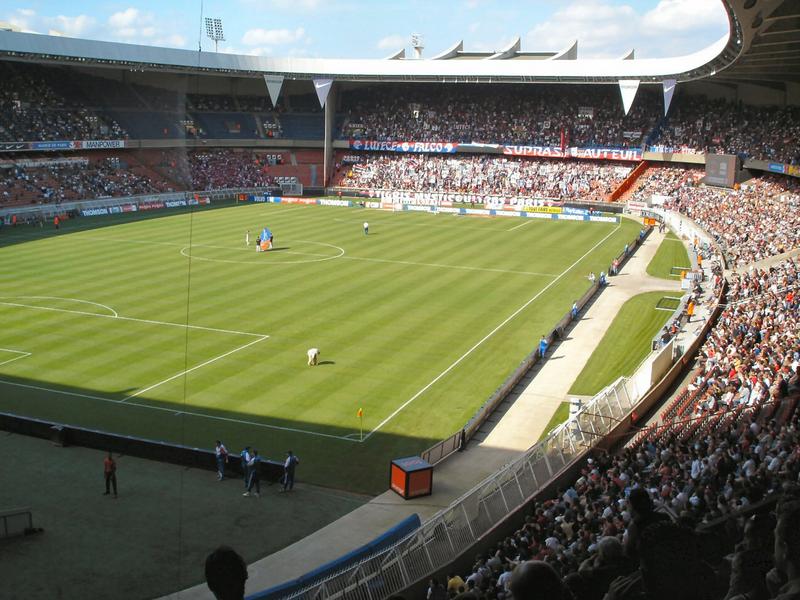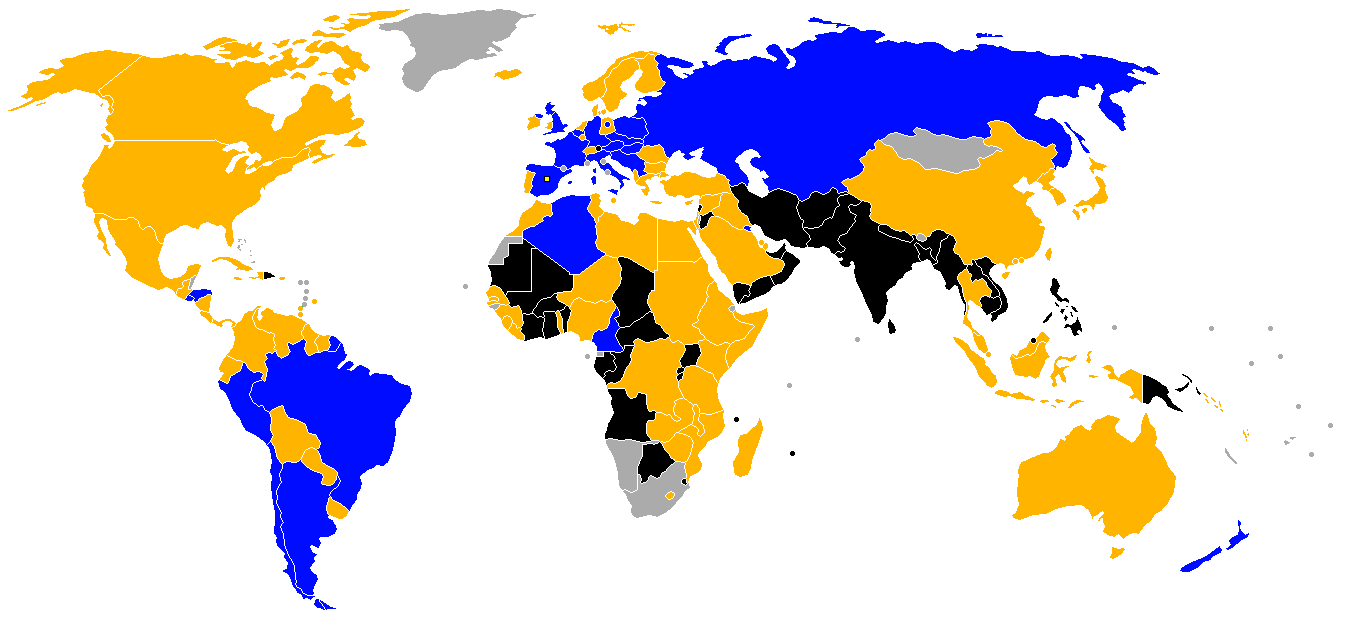|
Jaime Magalhães
Jaime Fernandes Magalhães (; born 10 July 1962) is a Portuguese retired footballer who played as a right midfielder. During his professional career, he represented Porto for 15 seasons. Club career Born in Porto, Magalhães was 14 when he joined local FC Porto's youth system. He made his senior debut four years later, as the northerners were coached by Austrian Hermann Stessl. Magalhães was an important player in the 1983–84 season, with Porto finishing second to S.L. Benfica in the Primeira Liga and also reaching that campaign's UEFA Cup Winners' Cup final; in the following year he scored a career-best 11 goals, as the club managed to end in the top position in domestic competition. Magalhães had several offers to leave Porto, but ultimately stayed and won a total of seven leagues, adding in 1987 the European Cup and playing the entire final against FC Bayern Munich. Under Bobby Robson he became a fringe player, and left in the 1995 summer having appeared in well ... [...More Info...] [...Related Items...] OR: [Wikipedia] [Google] [Baidu] |
Porto
Porto or Oporto () is the second-largest city in Portugal, the capital of the Porto District, and one of the Iberian Peninsula's major urban areas. Porto city proper, which is the entire municipality of Porto, is small compared to its metropolitan area, with an estimated population of just 231,800 people in a municipality with only 41.42 km2. Porto's metropolitan area has around 1.7 million people (2021) in an area of ,Demographia: World Urban Areas March 2010 making it the second-largest urban area in Portugal. It is recognized as a global city with a Gamma + rating from the [...More Info...] [...Related Items...] OR: [Wikipedia] [Google] [Baidu] |
Bobby Robson
Sir Robert William Robson (18 February 1933 – 31 July 2009) was an English footballer and football manager. His career included periods playing for and later managing the England national team and being a UEFA Cup-winning manager at Ipswich Town. Robson's professional playing career as an inside forward spanned nearly 20 years, during which he played for three clubs: Fulham, West Bromwich Albion, and, briefly, Vancouver Royals. He also made 20 appearances for England, scoring four goals. After his playing career, he found success as both a club and international manager, winning league championships in both the Netherlands and Portugal, earning trophies in England and Spain, and taking England to the semi-finals of the 1990 FIFA World Cup, which remained the national team's best run in a World Cup since 1966 until they reached the semi-finals of the 2018 World Cup. His last management role was as a mentor to the manager of the Republic of Ireland national team, while his ... [...More Info...] [...Related Items...] OR: [Wikipedia] [Google] [Baidu] |
1962 Births
Year 196 ( CXCVI) was a leap year starting on Thursday (link will display the full calendar) of the Julian calendar. At the time, it was known as the Year of the Consulship of Dexter and Messalla (or, less frequently, year 949 '' Ab urbe condita''). The denomination 196 for this year has been used since the early medieval period, when the Anno Domini calendar era became the prevalent method in Europe for naming years. Events By place Roman Empire * Emperor Septimius Severus attempts to assassinate Clodius Albinus but fails, causing Albinus to retaliate militarily. * Emperor Septimius Severus captures and sacks Byzantium; the city is rebuilt and regains its previous prosperity. * In order to assure the support of the Roman legion in Germany on his march to Rome, Clodius Albinus is declared Augustus by his army while crossing Gaul. * Hadrian's wall in Britain is partially destroyed. China * First year of the '' Jian'an era of the Chinese Han Dynasty. * Emperor Xian ... [...More Info...] [...Related Items...] OR: [Wikipedia] [Google] [Baidu] |
Intercontinental Cup (football)
The European/South American Cup, more commonly known as the Intercontinental Cup and from 1980 to 2004 as the Toyota European/South American Cup (abbreviated as Toyota Cup) for sponsorship reasons, was an international association football, football competition endorsed by UEFA (Europe) and CONMEBOL (South America), contested between representative clubs from these confederations (representatives of most developed continents in the football world), usually the winners of the UEFA Champions League and the South American Copa Libertadores. It ran from 1960 to 2004, when it was succeeded by the FIFA Club World Cup, FIFA Club World Championship, although they both ran concurrently in 2000. From its formation in 1960 to 1979, the competition was as a two-legged tie, with a playoff if necessary until 1968, and Penalty kick (association football), penalty kicks later. During the 1970s, European participation in the Intercontinental Cup became a running question due to controversial eve ... [...More Info...] [...Related Items...] OR: [Wikipedia] [Google] [Baidu] |
UEFA Super Cup
The UEFA Super Cup is an annual super cup football match organised by UEFA and contested by the winners of the two main European club competitions; the UEFA Champions League and UEFA Europa League. The competition's official name was originally the Super Competition, and later the European Super Cup. It was renamed the UEFA Super Cup in 1995, following a policy of rebranding by UEFA. It is not recognised as one of UEFA's major competitions. From 1972 to 1999, the UEFA Super Cup was contested between the winners of the European Cup/UEFA Champions League and the winners of the European/UEFA Cup Winners' Cup. After the discontinuation of the UEFA Cup Winners' Cup, it has been contested by the winners of the UEFA Champions League and the winners of the UEFA Cup, which was renamed the UEFA Europa League in 2009. The current holders are Champions League winners Real Madrid, who defeated Europa League winners Eintracht Frankfurt 2–0 in 2022. The most successful teams in the compe ... [...More Info...] [...Related Items...] OR: [Wikipedia] [Google] [Baidu] |
Supertaça Cândido De Oliveira
The Supertaça Cândido de Oliveira (; English: Cândido de Oliveira Super Cup, or simply Portuguese Super Cup) is an annual Portuguese football match played since 1979 between the winners of the Portuguese League (Primeira Liga) and Portuguese Cup (Taça de Portugal). When a team wins both competitions (thus achieving the double (''dobradinha'')), it plays again against the Cup runners-up. The Supertaça has been organised by the Portuguese Football Federation since 1981 and is usually played in August, right before the start of the league season. The trophy is named after former player, coach and sports journalist Cândido de Oliveira. History In the 1943–44 season, the Super Cup was created for a special game between Primeira Divisão champions Sporting CP and Taça de Portugal winners Benfica, on occasion of the inauguration of the Estádio Nacional. The commissioned trophy was named ''Taça Império'' – not to be mistaken with ''Taça do Império'', the first incar ... [...More Info...] [...Related Items...] OR: [Wikipedia] [Google] [Baidu] |
Taça De Portugal
The Taça de Portugal (; "Cup of Portugal") is an annual association football competition and the premier knockout tournament in Portuguese football. For sponsorship reasons, it has been known as Taça de Portugal Placard since the 2015–16 season. Organised by the Portuguese Football Federation since it was first held in 1938, the competition is open to professional and amateur clubs from the top-four league divisions. Matches are played from August–September to May–June, and the final is traditionally held at the Estádio Nacional in Oeiras, near Lisbon. The winners qualify for the Supertaça Cândido de Oliveira (or the runners-up, in case the winners are also the league champions) and the UEFA Europa League (unless they already qualify for the UEFA Champions League through league placing). Before 1938, a similar competition was held since 1922 under the name Campeonato de Portugal ( en, Championship of Portugal), which determined the national champions from among the dif ... [...More Info...] [...Related Items...] OR: [Wikipedia] [Google] [Baidu] |
Cap (sport)
In sport, a cap is a player's appearance in a game at international level. The term dates from the practice in the United Kingdom of awarding a cap to every player in an international match of rugby football and association football. In the early days of football, the concept of each team wearing a set of matching shirts had not been universally adopted, so each side would distinguish itself from the other by wearing a specific sort of cap. An early illustration of the first international football match between Scotland and England in 1872 shows the Scottish players wearing cowls, and the English wearing a variety of school caps. The practice was first approved on 10 May 1886 for association football after a proposal made by N. Lane Jackson , founder of the Corinthians: The act of awarding a cap is now international and is applied to other sports. Although in some sports physical caps may not now always be given (whether at all or for each appearance) the term ''cap'' for a ... [...More Info...] [...Related Items...] OR: [Wikipedia] [Google] [Baidu] |
1986 FIFA World Cup
The 1986 FIFA World Cup was the 13th FIFA World Cup, a quadrennial football tournament for men's senior national teams. It was played in Mexico from 31 May to 29 June 1986. The tournament was the second to feature a 24-team format. Colombia had been originally chosen to host the competition by FIFA but, largely due to economic reasons, was not able to do so, and resigned in 1982. Mexico was selected as the new host in May 1983, and became the first country to host the World Cup more than once, after previously hosting in 1970. The World Cup was won by Argentina (their second title, after winning in 1978). Argentina was captained by the 25-year-old Diego Maradona, who played a large part in his team's success by scoring his " Hand of God" goal, as well as another voted "Goal of the Century", in the same quarter-final against England. These were two of the five goals that Maradona scored during the tournament, and he also created another five for his teammates. Argentina beat ... [...More Info...] [...Related Items...] OR: [Wikipedia] [Google] [Baidu] |
UEFA Euro 1984
The 1984 UEFA European Football Championship final tournament was held in France from 12 to 27 June 1984. It was the seventh UEFA European Championship, a competition held every four years and endorsed by UEFA. At the time, only eight countries took part in the final stage of the tournament, seven of which had to come through the qualifying stage. France qualified automatically as hosts of the event; in the tournament led by Michel Platini, who scored nine goals in France's five matches, ''Les Bleus'' won the championship – their first major international title. Bid process The hosting of the event was contested by bids from France and West Germany. The French bid was unanimously selected by the UEFA Executive Committee at a meeting on 10 December 1981. Tournament summary Group matches The opening game of tournament featured France and Denmark. The sides played out a very close encounter until Michel Platini's goal on 78 minutes gave the hosts a 1–0 victory. The opening ga ... [...More Info...] [...Related Items...] OR: [Wikipedia] [Google] [Baidu] |
1982 FIFA World Cup Qualification (UEFA)
Listed below are the dates and results for the 1982 FIFA World Cup qualification rounds for the European zone (UEFA). For an overview of the qualification rounds, see the article '' 1982 FIFA World Cup qualification''. A total of 33 UEFA teams entered the competition. Moreover, Israel were also assigned to the European zone despite not being a UEFA member. The European zone was allocated 14 places (out of 24) in the final tournament. Spain, the hosts, qualified automatically, leaving 13 spots open for competition between 33 teams. The 33 teams were divided into 7 groups. The teams would play against each other on a home-and-away basis. The number of teams and spots for each group were as follows: *Groups 1 to 6 had 5 teams each. The group winners and runners-up would qualify. *Group 7 had 3 teams. The group winner would qualify. Draw The draw for the qualifying groups took place in the Zürichhorn Casino in Zürich, Switzerland on 14 October 1979. During the draw procedure, th ... [...More Info...] [...Related Items...] OR: [Wikipedia] [Google] [Baidu] |
1982 FIFA World Cup
The 1982 FIFA World Cup was the 12th FIFA World Cup, a quadrennial Association football, football tournament for men's senior national teams, and was played in Spain between 13 June and 11 July 1982. The tournament was won by Italy national football team, Italy, who defeated Germany national football team, West Germany 3–1 in the final, held in the Santiago Bernabéu Stadium in the capital, Madrid. It was Italy's third World Cup title, but their first since 1938 FIFA World Cup, 1938. The defending champions, Argentina national football team, Argentina, were eliminated in the second round (finishing third and last in their group). Algeria national football team, Algeria, Cameroon national football team, Cameroon, Honduras national football team, Honduras, Kuwait national football team, Kuwait and New Zealand national football team, New Zealand made their first appearances in the finals. The tournament featured the first penalty shoot-out in World Cup competition. This was the l ... [...More Info...] [...Related Items...] OR: [Wikipedia] [Google] [Baidu] |






